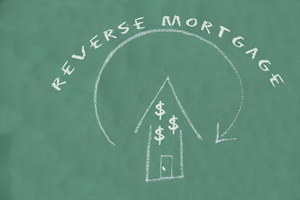
Many people are familiar with the Reverse Mortgage, also known as the Home Equity Conversion Mortgage or HECM, which allows seniors (age 62 and over) to access the equity in their homes to obtain needed funds for home repairs and/or daily living expenses that retirement funds are not sufficient to cover.
However, even though the program has been available for many years (January 2009), many seniors and even Realtors are not aware that the program can also be used to purchase a new home. This is particularly beneficial for seniors who want to downsize to a smaller home or move to be closer to their families as they age. The program was designed to allow seniors to purchase a new principal residence and obtain a reverse mortgage within a single transaction.
Buying a Home with a Reverse Mortgage
The criteria for qualifying for a HECM for purchase is similar to that required for a HECM refinance and is set forth by the Federal Housing Administration (FHA). The borrower must be at least 62 years old, plan to occupy the home as a primary residence, cannot be delinquent on debt to the federal government and must attend and receive a certificate of completion of HECM loan counseling. Your lender will provide you a list of approved counseling agencies where you can obtain the required counseling. Family members are encouraged to participate in these sessions with the senior borrower (s).
In addition the property must meet eligibility requirements of FHA. All repairs to correct major property deficiencies that threaten the health and safety of the homeowner and/or soundness of the property must be completed by the seller prior to closing.
Typical property deficiencies requiring correction are:
- No running water.
- Leaking roof.
- No primary heating source.
- Inadequate electrical system (including lighting).
- Inoperable doors and windows (inhibited ingress and egress).
- State or local code violations.
An appraisal is required for all HECM transactions, including purchase transactions.
Similar to a HECM refinance, the lender will calculate the amount that the HECM mortgage will provide for the funding of the home based on the borrower’s current age and value of the property.
Other Requirements:
- Credit scores typically are not an important consideration. However, the lender will run credit to determine if there are any other concerns, such as tax liens, judgments, etc.
- Seller concessions or seller paid closing costs are not permitted on a reverse mortgage purchase.
- The borrower does not have to report a substantial amount of income, however, he/she is required to demonstrate ability to pay for homeowners insurance and taxes on the home and must be able to cover ordinary maintenance costs.
- The loan generally does not have to be repaid until the last surviving homeowner permanently moves out of the property or passes away. At that time, the estate has approximately 6 months to repay the balance of the reverse mortgage or sell the home to pay off the balance All remaining equity is inherited by the estate. The estate is not personally liable if the home sells for less than the balance of the reverse mortgage.

The Marimark Mortgage Newsletter will keep you informed with important events in the mortgage industry that could impact your finances.
We especially focus on ways to save money on your current and future mortgages. And, we continually share the information we share with our clients, because we believe informed consumers are the best consumers.
Real estate agents, and other professionals in the industry, will receive an ongoing wealth of information that will help them serve their clients.